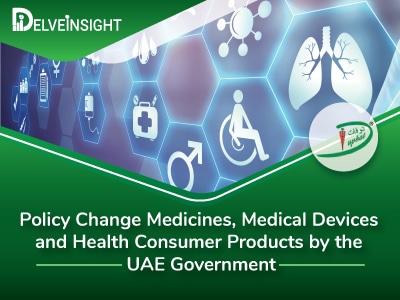DATE
August 18, 2021
CATEGORY
Blog
SHARE

Last year the UAE government adopted a new federal law to consolidate and restructure the legal system in which medical products are marketed in the UAE. Herein are key points pertaining to new laws and regulation-
- Dubai Health Authority generated a ‘Positive List’ which intended to allow 100% Foreign Direct Investment in various fields including ‘medical and dental clinics’; ‘hospital activities’; ‘veterinary activities’; ‘research and development in the scientific field’; and other ‘health-related activities’, under certain conditions. Some of the key highlights are –
- Complete ownership of the hospital by foreign entities who have directly invested in the project, however it is subject to approval from the national authorities who will assess the proposal on the basis of economic viability, which includes numbers of hospitals and medical centers in that area. There is no assessment required in case, hospital is built in Dubai Healthcare City. They have also kept AED 100,000,000 as minimum value to invest.
- For research & development in scientific field, veterinary activities & medical and dental clinics, share capital value requirements are in accordance with applicable laws.
- A minimum share capital of AED 70,000,000 is required for other activities in the field of human health.
- The new law indicates that one pharmaceutical institution must be designated as an importer by a regulatory authority but can designate one or more vendors to supply the product within the UAE.
- It is mandatory to be a UAE citizen to establish pharmaceutical operations like supply, distribution, & storage. However, exceptions can be there based on cabinet resolutions and location of the companies if in the free zone area.
- The new legislation provides guidelines for conducting clinical trials. Ministry of health of UAE will setup an ethics committee to streamline national ethics policies & coordinate with local health regulators.
- Medical device companies can exempt themselves from the purview of price control mechanism if it falls under some regulatory or ministerial resolution.
- Additionally, medical products cannot be sold beyond maximum selling price or higher prices and no discounts can be provided for the same.
- In the current modified law, there is no protection for novel drugs but the UAE government remains committed to international agreements and the patent law.
- The new law prohibits pharmacists to substitute or replace prescribed drugs until and unless the pharmacist consults the issuing medical practitioner.
- The new law has also increased the fines and raised the administrative sanctions in case of any violation. Criminal cases can also be initiated if there is serious breach of specific provisions.
- The ICT Health Law specifically forbids the transmission, generation, transfer or retention, in relation to health services carried out in the UAE, of medical records and health information outside the UAE, except where the competent authorities have issued a resolution to do so.
- The Dubai Healthcare City Authority (‘DHCA’) issued a policy pertaining to Telehealth Services, to govern ‘remote telecommunications, generally for the purpose of diagnosis or treatment, which may include media such as, telephone, internet based video, email and other similar electronic-based communications provided by a DHCA Licensed Service Provider
Conclusively, across the Middle East, governments in the region have issued new or strengthened laws and regulations to increase compliance and introduce initiatives to encourage foreign investment as the sector is witnessing a major and substantial overhaul of its regulatory structures.






